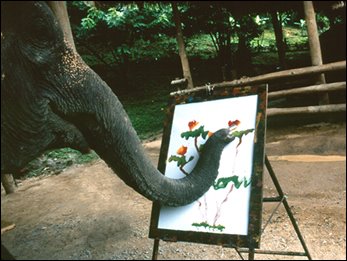
The Internet. Arguably one of mankind's most epic achievements, both in principle and effect. It has made possible countless advances of science, economics, education, philosophy, and almost any other facet of modern life one cares to name. With it, we have become a species united by our pursuit of efficiency, understanding, and order. It is a jewel of human creativity, born from the crushing weight of our collective intellects and the white heat of our insatiable curiosity.
However, just as any natural gem, it serves to magnify our most crippling vices to the same degree as our most philanthropic aspirations. Whichever way your opinions lean, there is no doubt that the Internet has impacted numerous aspects of our society in the few years since its inception, and will likely continue to do so for many years of the foreseeable future. At this point I will implore the reader (most likely my teacher) to consider the staggering scale of the intellectual labyrinth posed by this prompt, the manifold paths one could explore in the process of answering it, the depth of research necessary to adequately pursue even one of those, and the amount of semi-educated guesswork I will be forced to employ in attempt to offset my lack of hard evidence. If the reader can bear all of this in mind while unraveling this blog entry, then hopefully you will understand why it demonstrates such a poverty of reason. One of the most profound of the internet's nearly infinite effects was the radical shift in cultural values that seemed to develop on par with its growth. It seems (to my admittedly shallow understanding of social history) that with the advent of the internet and its capability for near-instant communication, cultural values have diminished. I cannot say if this is a boon or tragedy, but it seems apparent how the personal interactions and experiences that ruled social behavior for centuries have diminished alongside the advance of technology. When America was in the midst of its struggle with England and the Constitution was conceived, the majority of people cultivated a rural lifestyle, in which information transfer was confined to the physical, such as writ or word of mouth. The effects brought on by the absence such a prevalent aspect of human social structure are unclear, but we can always postulate. Perhaps before the internet people's opinions were formed by their own conscience and familial influence, whereas afterwords they had access to
